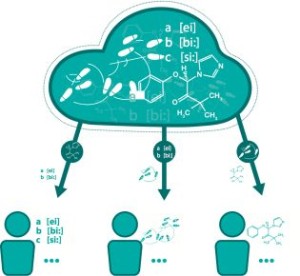The Internet and with it the rise of social networks have enabled a radically innovative way of producing knowledge-related goods. Software can now be jointly written by thousands of developers as the operating system ‘Linux’ shows. The encyclopedia Wikipedia is updated by roughly 1.7 million contributors worldwide. Law professor Yochai Benkler has coined the term “commons-based peer-production” to describe this development. He has defined some of the characteristics intrinsic to this phenomenon.
Commons-based peer-production is “radically decentralized, collaborative and nonproprietary, based on sharing resources and outputs among widely distributed, loosely connected individuals who cooperate with each other without relying on either marked signals or managerial commands”, he wrote in his 2006 book “The Wealth of Networks” (Benkler 2006:60).
A Wikipedia article is an organic text produced by hundreds of ‘peers’. This free text is not controlled by one formal editor-in-chief, but is, instead, a unifying construct. The document might be conceptualized by a student in Germany, revised by a farmer in Bolivia, and fine-tuned by a professor in South Africa. The article is ruled by a commons-based license. This means that the end product of this co-production is, in turn, available to readers and additional editors through an open license, ensuring that all future versions can be shared, traced back to the author and further improved.
__________________________________________________
This blog is part of a series of 10 questions that I have extracted of my article “Learning by Sharing – „How global communities cultivate skills and capacity through peer-production of knowledge“. The piece has been released in June as part of the GIZ Online- Series „10 trends in open innovation. How to leverage social media for new forms of cooperation“. Check it at https://www.knowledge-commons.de/en/learning-by-sharing/
Further readings on the question? Here.
____
Note: This text was first published on the blog of Balthas Seibold at the Alumniportal Germany (www.alumniportal-deutschland.org/en/). Check the blog ( register or login first). All blog entries represent the personal views and ideas of Balthas Seibold.
